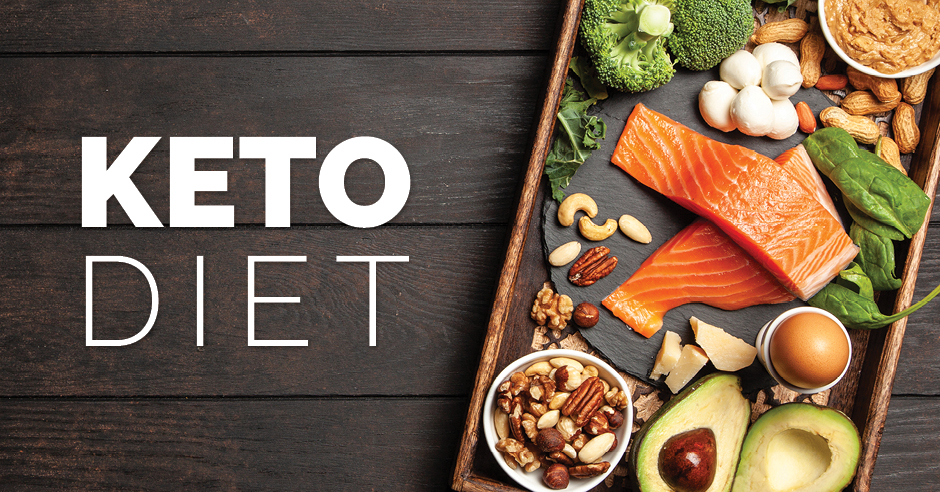Content
The ketogenic (keto) diet is becoming more and more popular worldwide because many people are able to lose weight thanks to it. This specific diet offers numerous health benefits and some specialists even prescribe it as a therapy for some types of epilepsy.
What is the keto diet?
The keto diet focuses on eating a high-fat diet, limited protein intake and keeping carbohydrate intake low, for example below 50 grams per day. Typically, total calories are divided into 70% fat, 20% protein and 10% carbohydrates. When people consume less carbohydrates, the body produces ketones. Ketones are small fuel molecules produced in the liver.
When the body goes into a state of ketosis, it begins to use ketones as an alternative fuel for cells, especially the brain, which normally gets its energy from glucose. This process of switching metabolism can result in a significant reduction in the body’s glycogen stores and rapid consumption of excess water. The introduction of a ketogenic diet can have various effects on the body. One of the benefits is related to reduced feelings of hunger and more stable energy levels, as ketones provide a longer lasting energy source compared to sugars.
Keto diet and brain benefits
When glucose stores are limited, the human brain can use a backup source of energy. The brain is the most metabolically active tissue in the body, so it needs a constant source of energy. In some situations, it relies almost exclusively on glucose to function properly. When glucose is scarce, the brain begins to burn ketones – these compounds are produced in the liver from fatty acids. Ketones have a strong, distinctive smell, and this is why many people who follow a low-carb diet complain of bad breath.
The goal of the keto diet is to improve fat burning for energy, as well as to produce ketones for brain energy. The keto diet has been shown to be very effective in some cases of epilepsy where drug therapy alone is not enough to control seizures. The keto diet in turn can lower oxidative stress and improve mitochondrial function. Oxidative stress leads to premature aging and damages cells. Overall, reducing oxidative stress and improving energy production means improved cell function, especially in the brain since it is so metabolically active. The keto diet is also known to have an anti-inflammatory effect on the brain.
As mentioned above, the keto diet is used to treat some cases of epilepsy. It is also used in other brain diseases, including Alzheimer’s disease and Parkinson’s disease.
Keto diet and weight loss
The keto diet can not only improve the control of glucose, insulin and blood lipid levels, but it has also been used effectively to promote weight loss. The first effects of the keto diet on weight are usually noticeable very quickly. Many who follow it notice a weight loss of 4 to 5 kilograms in the first two weeks. However, it is important to know that a significant portion of this initial weight loss stems from the loss of water and muscle mass.
Since each molecule of glycogen holds six molecules of water, the keto diet depletes glycogen and causes fluid loss in the body. Consequently, this can lead to significant weight loss. However, it is important to note that if glycogen is restored, some of the lost pounds are quickly regained.
Also, losing muscle mass is a problem for several reasons. In relation to metabolism, the loss of muscle mass can significantly reduce the rate of metabolism. Since lean muscle mass is key to burning fat in the body, losing it can lead to weight gain because less fat (calories) are burned. Hence the idea that preserved muscle mass is the main “fuel engine” for maintaining an appropriate weight in the long term.
Is the keto diet suitable for long-term use?
Although the short-term benefits of the keto diet are notable, long-term adherence is controversial. First, it’s a restrictive diet that not everyone can maintain long-term. Second, the keto diet can promote ketosis and high ketone levels in the blood. This process is usually not dangerous, but can be life-threatening, especially in severe cases. Diabetics with poor glucose control are most at risk.
The most important question that has not yet been fully explored is whether promoting ketosis is a health condition. Research evidence suggests that low-carbohydrate diets, in general, are not suitable for long-term health maintenance.
Cutting out refined carbohydrates and processed foods rich in sugar, white flour and other refined grains is central to the keto diet. However, this process neglects the variety of fruits, vegetables, and other low-glycemic plant foods that are rich in nutrients and dietary fiber. Cutting out these foods can pose a health risk.
In addition, replacing carbohydrates with fat or protein of animal origin increases the risk of cardiovascular problems. However, it should be noted that when this replacement carbohydrate intake is based on plant sources such as vegetables, nuts, legumes and whole grains, these risks are greatly reduced. So, the keto diet should be combined with an intake of plant proteins and fats.
Tips for following a keto diet
When following a keto diet, it is essential to keep your daily carbohydrate intake under 50 grams. It is key to choose carefully the sources of carbohydrates you take in. Focus on foods that are not only low-glycemic, but also nutrient-dense.
Here you include:
- green leafy vegetables such as arugula, spinach, kale,
- cruciferous vegetables such as broccoli, cauliflower, Brussels sprouts
- peppers,
- cucumbers,
- celery.
Also, berries are a good choice on a keto diet if eaten in small amounts. To achieve a healthy version of this diet regimen, consume foods that are rich in healthy fats and vegetable oils. This includes nuts and seeds, olive oil, avocados, fish and other seafood. Eat more beef and lamb. Choose meat from animals that have been fed natural and unprocessed sources. Such an approach not only helps you achieve your keto diet goals, but also provides important nutrients for your overall health.
Important nutrients when following a keto diet
When following a keto diet, it is important to pay special attention to certain nutrients, as deficiencies may occur in your body. These nutrients include thiamin (vitamin B1), folate, vitamins C and D, calcium, magnesium and potassium.
Potassium deficiency can be significant on the keto diet, so using a potassium chloride-based salt substitute is helpful. This can help keep potassium levels in the right range, which is essential for normal muscle function, heart rhythm and fluid balance in the body.
Also, it is important to note that the keto diet can lead to impaired digestive function. This leads to gas, bloating and changes in bowel movements. In the case of such digestive problems, you may want to consider using digestive enzymes, which can help break down foods more efficiently and reduce discomfort.
Sources:
- Nuwaylati D, Eldakhakhny B, Bima A, Sakr H, Elsamanoudy A. Low-Carbohydrate High-Fat Diet: A SWOC Analysis. Metabolites. 2022 Nov 17;12(11):1126.
- Dyńka D, Kowalcze K, Paziewska A. The Role of Ketogenic Diet in the Treatment of Neurological Diseases. Nutrients. 2022 Nov 24;14(23):5003.
- Seidelmann SB, Claggett B, Cheng S, Henglin M, Shah A, Steffen LM, Folsom AR, Rimm EB, Willett WC, Solomon SD. Dietary carbohydrate intake and mortality: a prospective cohort study and meta-analysis. Lancet Public Health. 2018 Sep;3(9):e419-e428.

